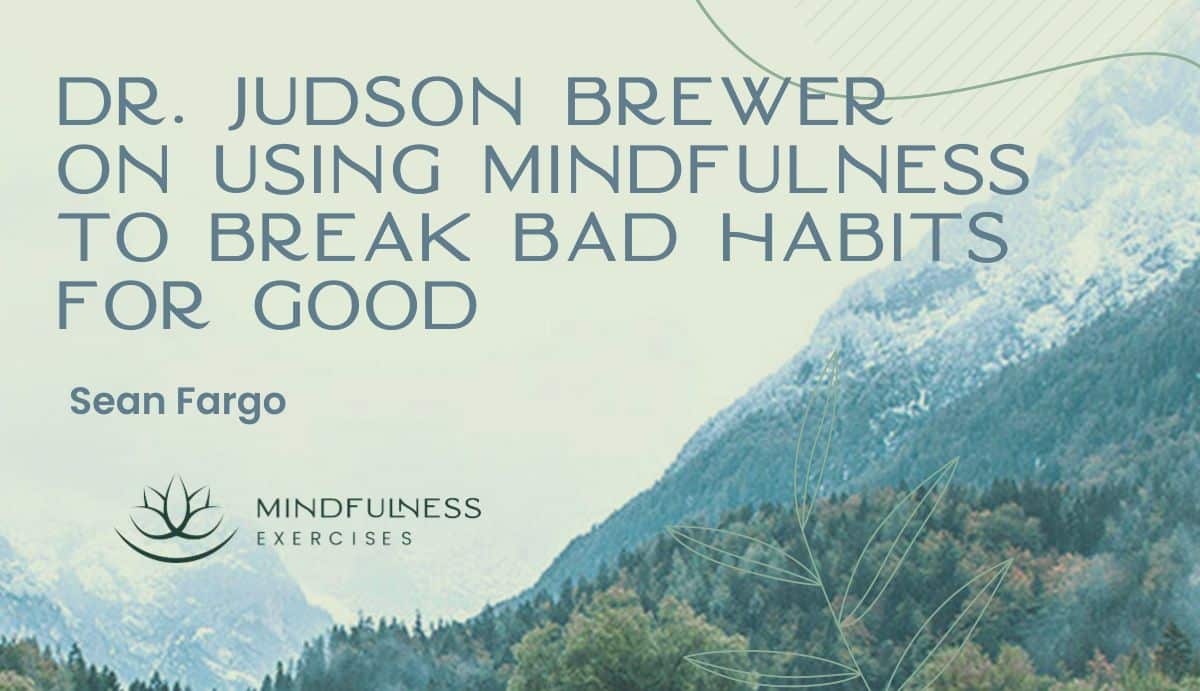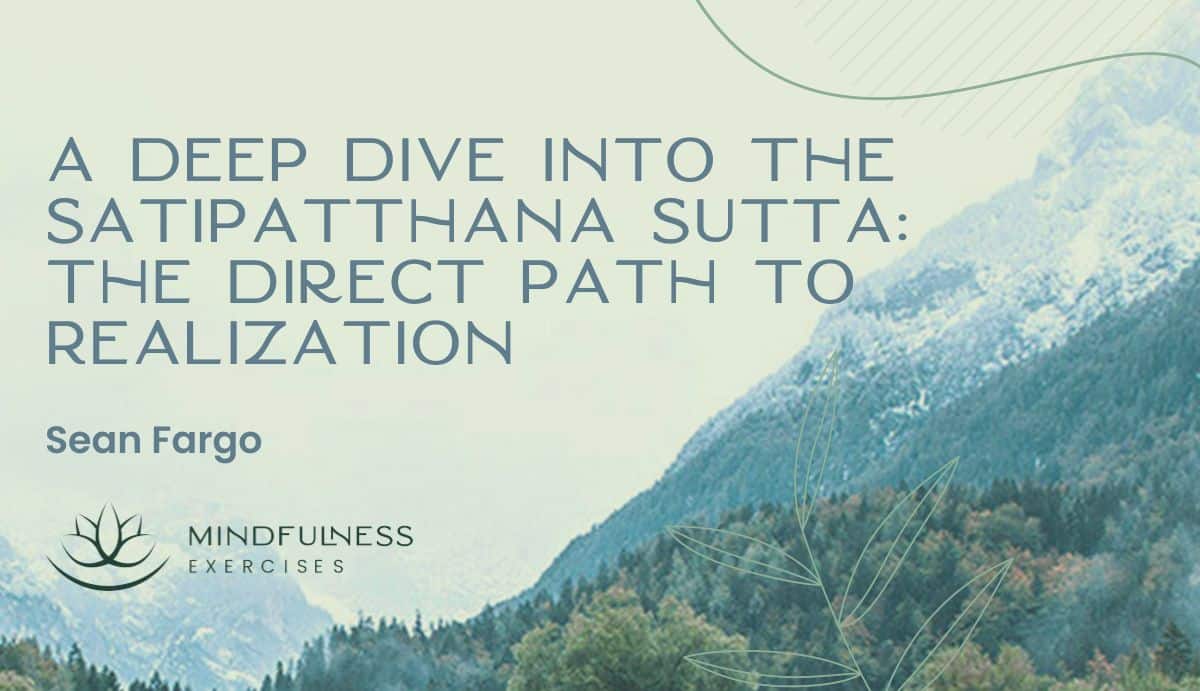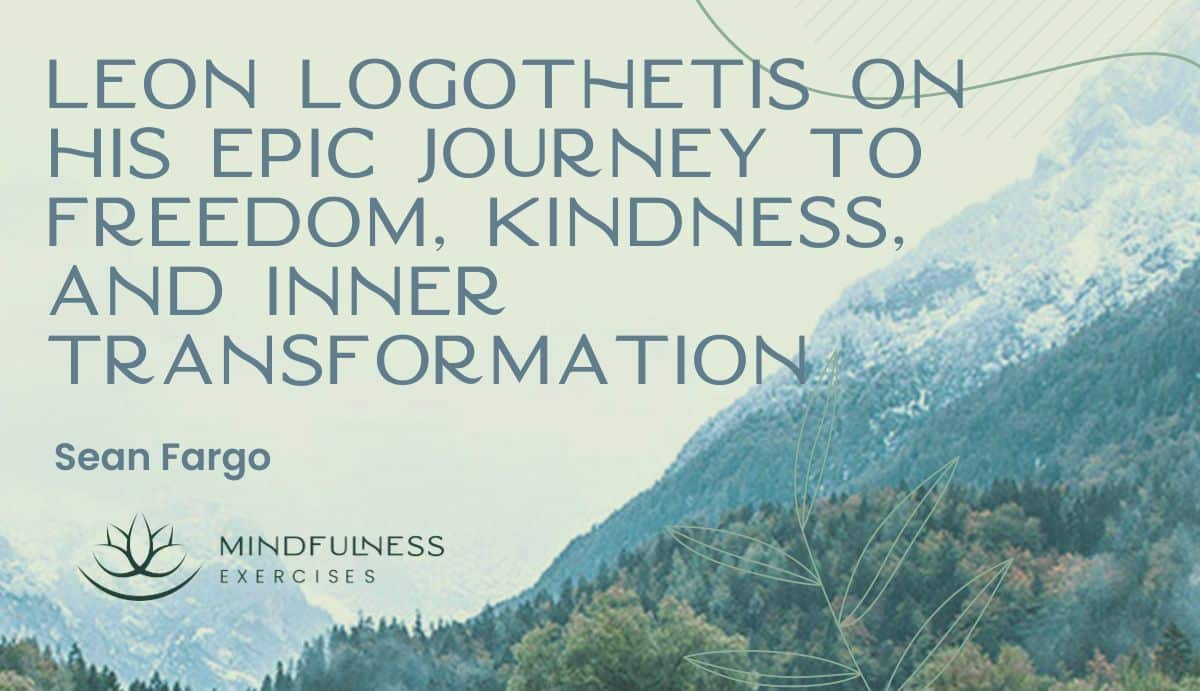Listen now
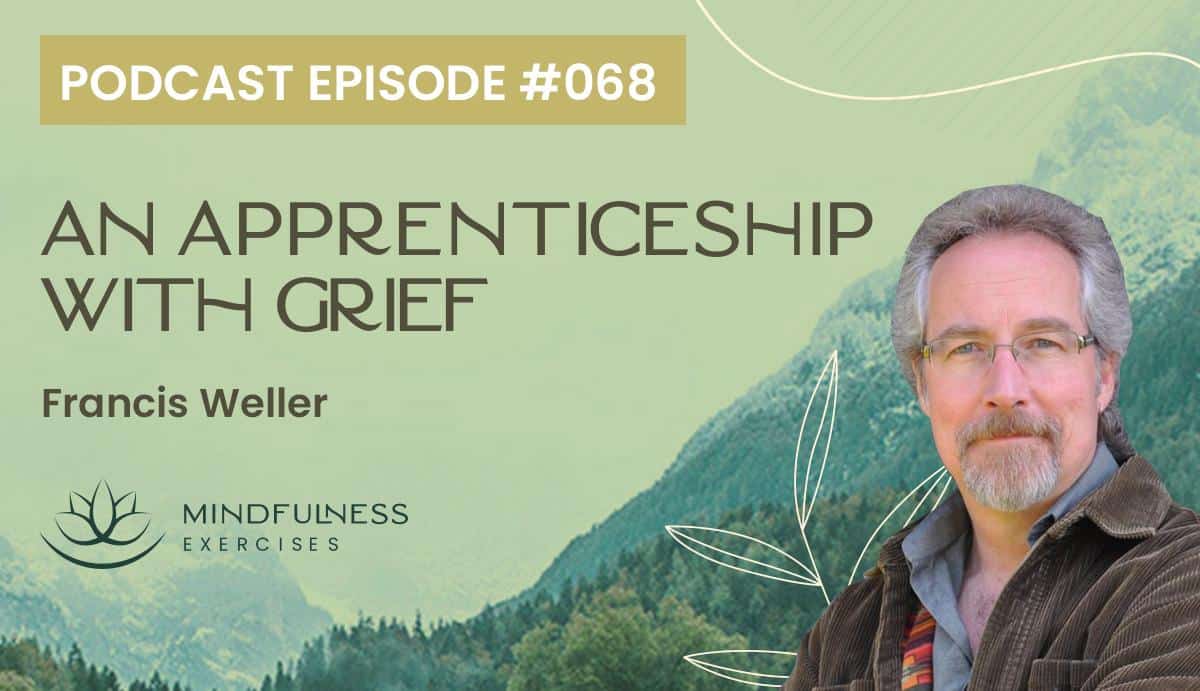
How can we bring mindfulness to grief? Grief is something we all go through, for ourselves, our loved ones, our communities, and our planet. And yet, many of us are afraid to open up to the strong emotions of grief, sorrow and loss.
In this episode, we hear from psychotherapist, author and soul activist Francis Weller on how developing a long-term apprenticeship with grief can help us metabolize our sorrow and stay present for the fullness of this life.
Francis Weller, MFT, is a master of synthesizing diverse streams of thought from psychology, anthropology, mythology, alchemy, indigenous cultures and poetic traditions, a style he calls soul-centered psychotherapy. He is the author of several books on loss, sorrow, and grief, and offers a 4-session audio course, An Apprenticeship with Sorrow: Community, Ritual, and the Sacred Work of Grief.
This talk is a brief excerpt from Francis Weller’s guest teacher presentation to those enrolled in our Mindfulness Meditation Teacher Training Program. Learn more about this unique, online, self-paced certification program at mindfulnessexercises.com/certify
What You’ll Learn in This Episode:
Show Notes:
Loss as humanity’s most persistent issue
Loss is the most persistent issue Francis Weller has observed in his patients during his 40-year career as a psychotherapist. Although people come through the door from all walks of life and with all types of stories, each of them has experienced loss. We lose our childhoods to trauma. We lose marriages, homes, friendships, or our sense of safety and continuity. Each of us contends with grief in one form or another, whether we are aware of it or not.
“The walk with sorrow is lifelong. It’s not that you have an episode with grief and go back to normal living. Grief is around us all the time, constantly swirling around us on filaments of sorrow. So, how does one stay open to the world, and stay open to your own life if that energy is moving around us and we don’t know how to metabolize it?”
The apprenticeship with sorrow
Weller proposes we take up an apprenticeship with sorrow as a means of processing our grief. An apprenticeship is a long-term commitment to becoming a master of a discipline. It requires our engagement and effort and trains us in a particular skill. In this case, that skill is becoming a vessel in which grief can be held, worked and transmuted.
“In the language of that old apprenticeship, the culmination was to become a master craftsperson. In the language of soul, this long apprenticeship doesn’t lead to mastery, it leads to elderhood. This is what we are deeply missing in the collective, is someone who has undertaken this long faithful journey with grief and has allowed it to work them in ways that opens them to the capacity to become a ripened human being, capable of showing up for the world.”
Grief as a skill and not just an emotion
Weller speaks of grief as a core faculty of being human. The premise is that grief is not just an emotion, but a skill we must cultivate and develop. By committing to a long period of study, starting off humble, working with grief and allowing it to work us, we may discover that we are verbs more than nouns, that processing grief is not passive. It is the skillful action of turning toward grief that allows it to be of benefit to the collective.
“To be skillful in this terrain is to process and assess the capacity to turn towards the grief. In the vessel, whatever we’re holding, in terms of what’s present to us in the grief, it has the potential to transmute into something medicinal for the village, for the community. That’s pure alchemy. It isn’t to somehow get by it or get through it, but to tend the sorrow long enough in that apprenticeship, warm enough, so that it transmutes into something medicinal. Something for the village, not so much for yourself.”
Grieving as staying in the present versus dwelling in the past
When grieving a loss it’s normal to wonder how long it will last or when it will end. We often judge ourselves for grieving by labeling it as a form of living in the past. We try our best to ‘move on’ or to push our grief aside by staying busy or engaging in other avoidant habits. But for Weller, to grieve is to connect deeply with the present, to be in the flow of life, living to the fullest.
“The idea is keeping the material warm. That’s an essential idea from alchemy. And that warmth is done through our attention, affection, noticing, our interest. [...] When we can work with the grief what it allows us to do is to get current with our life. [...] To be in the current of life, the electricity of life, to feel it really just moving through us, to feel alive again. [...] To actually be in the current, the flow of life, these are good things to do. And that’s what I’ve seen happen as we’ve become more skillful at bringing community together around grief.”
The six elements of apprenticeship with sorrow
Weller describes six essential elements which shape our apprenticeship with sorrow. The first is to have a right relationship with sorrow, to walk alongside it on a daily basis. The second is to have a practice that can help you stay grounded, such as mindfulness. The third is to maintain an adult presence when grief arises. Only as mindful adults can we turn toward grief and compassionately hold it.
“Very few of us had our grief adequately held as children. And so, these places that were not occupied and held oftentimes feel bottomless. A bottom never fully formed around that emotional experience. So when it comes up, there’s that terror again. [...] I can see it happen. When the grief comes into the room, suddenly the face of a 50 year old disappears and there’s a face of a 5 year old. They become displaced by that child state, by the trauma state, and there is no longer an adult in the room.”
Solitude and community as partners in healing
The final three elements of our apprenticeship with sorrow include solitude, self-compassion, and remembering our interconnectedness. As we grieve, remembering that we are not alone, that we are engaged with the world and all of humanity, is vital. It is equally important to honor our alone time. When in silence and solitude, we have a wonderful space in which to practice self-compassion.
“How do we turn [our alone time] from just simply endurance into sanctuary? [...] Can you imagine [your alone time] as the holiest time of day? That when you open the door the one you are greeting is the one who is feeling so alone, so desolate, so cold. And you walk in the door and you say, “‘Oh honey I’m home. Let’s put the soup on, let’s start the fire, tell me about your day. Sit with me, I’ll get you warm again.’ That’s that movement that turns it from isolation to silence and solitude.”
Additional Resources:
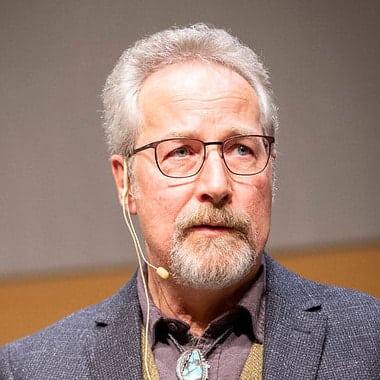
About Francis Weller:
Francis Weller, MFT, is a psychotherapist, writer and soul activist. He is a master of synthesizing diverse streams of thought from psychology, anthropology, mythology, alchemy, indigenous cultures and poetic traditions and has developed a style he calls soul-centered psychotherapy. A 3-time author, his books include The Wild Edge of Sorrow: Rituals of Renewal and the Sacred Work of Grief; The Threshold Between Loss and Revelation (with Rashani Réa), and In the Absence of the Ordinary: Essays in a Time of Uncertainty.
Weller received a B.A. from the University of Wisconsin Green Bay and two Master’s Degrees from John F. Kennedy University in Clinical Psychology and Transpersonal Psychology. He is currently on staff at Commonweal Cancer Help Program, co-leading their week-long retreats with Michael Lerner. He founded and directs WisdomBridge, an organization that offers educational programs that seek to integrate the wisdom from indigenous cultures with the insights and knowledge gathered from western poetic, psychological, and spiritual traditions.

